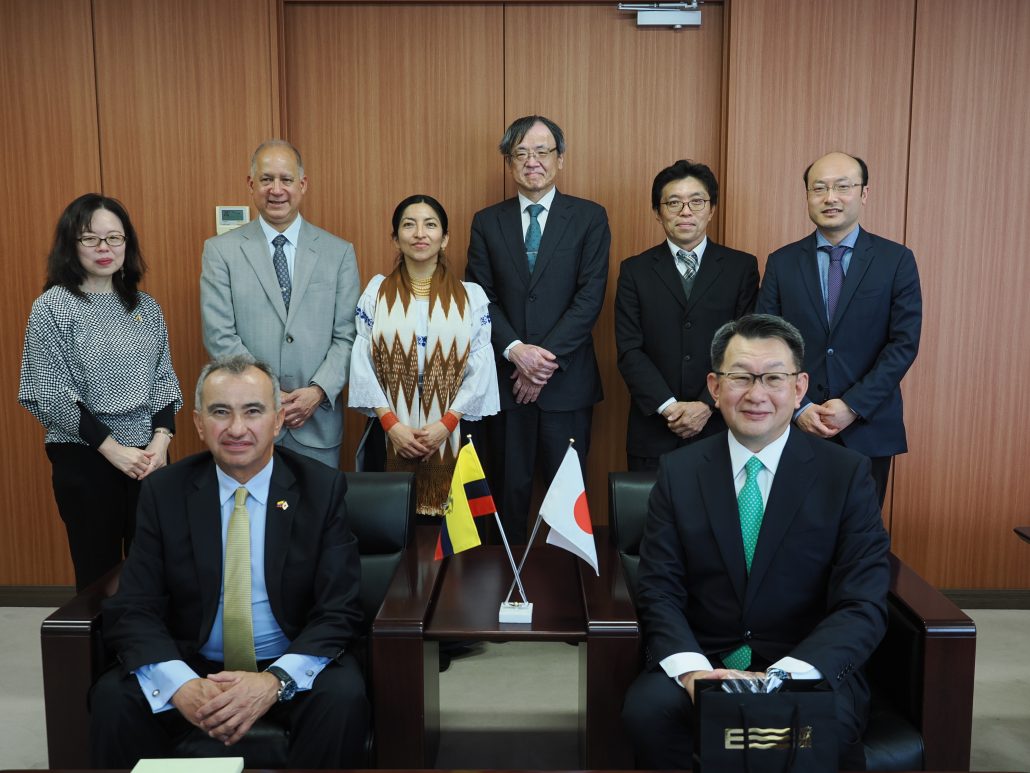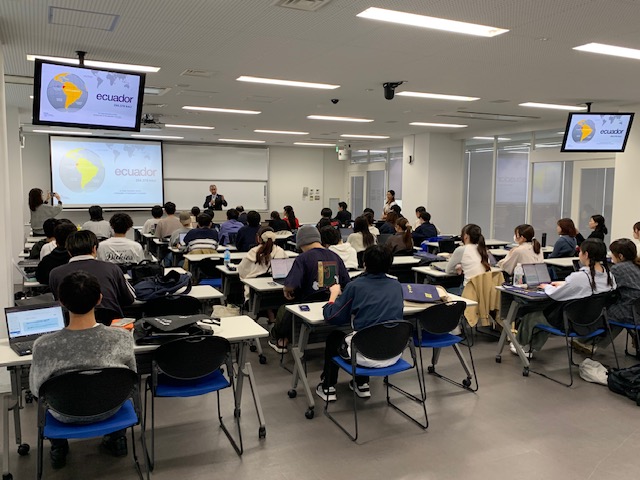As part of an educational initiative to promote awareness of Latin America and the Caribbean (LAC) among Japanese university students, H.E. César Montaño, Ambassador of the Republic of Ecuador to Japan, delivered an engaging lecture to more than 40 students at Chiba University.
The event marked the first in a series of diplomatic lectures launched this year by the Japan Association for the Promotion of Latin America and the Caribbean (JAPOLAC) in collaboration with the Graduate School of Global and Transdisciplinary Studies at Chiba University.
The lecture, titled “Ecuador: A Land of Cultural and Natural Richness”, was conducted in English and aimed at providing Japanese students with practical knowledge of Ecuador’s diverse geography, vibrant cultural heritage, environmental stewardship, and contributions to international diplomacy. The lectures are designed in English to immerse students in an international learning environment and broaden their intercultural communication skills.

Students from diverse academic backgrounds—including engineering, liberal arts, law, education, science, and information studies—shared highly positive feedback on the lecture.. Many expressed their fascination with Ecuador’s status as a megadiverse country, highlighting the Ambassador’s discussion of the Andes Mountains, the Amazon rainforest, the Galápagos Islands, and coastal regions. Others expressed interest in Ecuador’s significant contribution to Japan’s food supply, particularly through products such as shrimp, bananas, cacao, and frozen broccoli.
Beyond ecological and economic topics, students appreciated the opportunity to learn about Ecuador’s indigenous traditions, music, and festivals, drawing comparisons with Japan’s own efforts to preserve cultural heritage. Ambassador Montaño’s warm and approachable style left a lasting impression, and many students noted that the lecture deepened their understanding of the role of diplomacy in fostering global cooperation.
Dr. Ritter Diaz, Representative Director of JAPOLAC, emphasized the importance of the initiative, noting:
“This series of lectures is designed to strengthen collaboration between diplomatic missions and Japanese academic institutions. We are pleased to begin with such an inspiring session from the Ambassador of Ecuador, which certainly will open the door for further academic cooperation between Chiba University and Ecuador universities.”
Looking ahead, JAPOLAC plans to expand the program with future lectures featuring diplomats from across the Latin American and Caribbean region. The initiative reflects JAPOLAC’s ongoing commitment to building bridges of knowledge, friendship, and understanding between Japan and the LAC countries.

